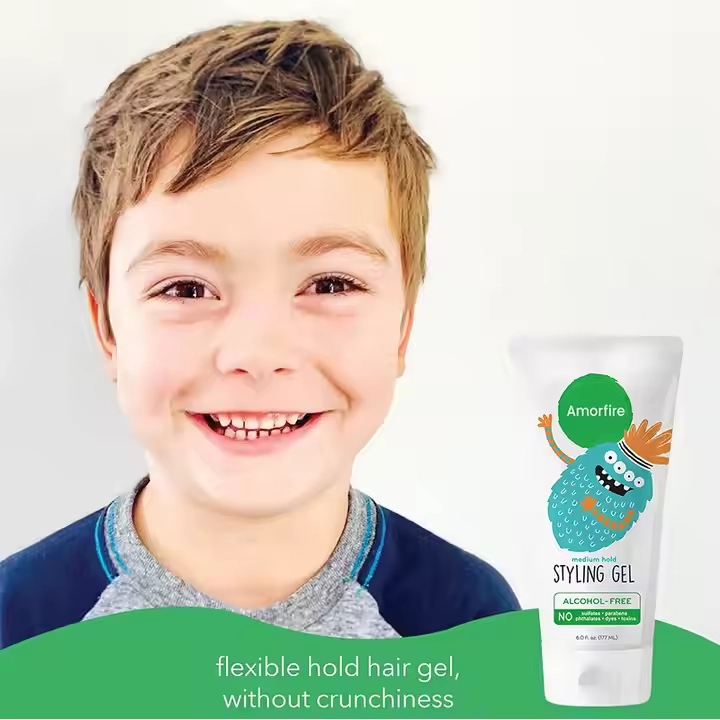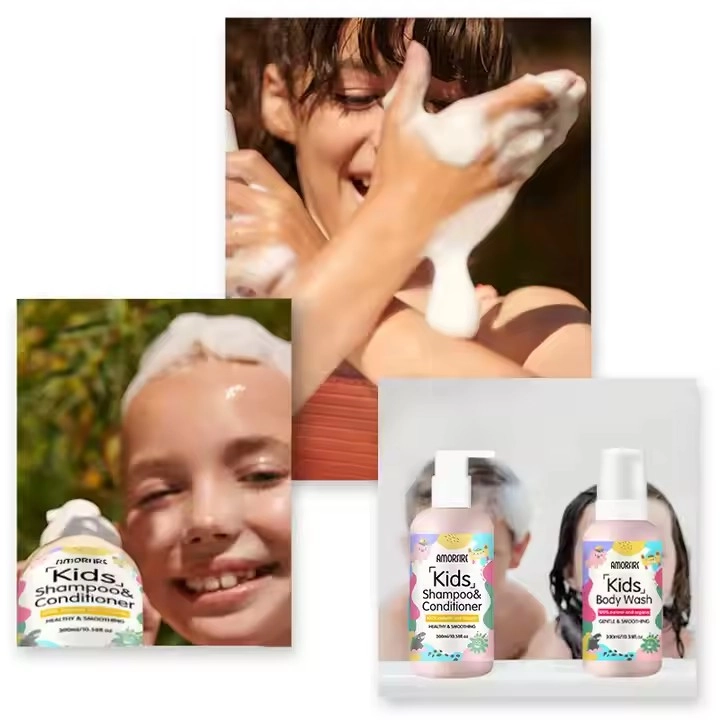Views: 220 Author: cosmeticsinhot Publish Time: 2025-11-16 Origin: Site








Content Menu
● Understanding Baby Skin Sensitivity
>> The Unique Nature of Baby Skin
>> Common Reactions to Harmful Ingredients
● Harmful Ingredients to Avoid
>> 1. Parabens
>> 4. Sodium Lauryl Sulfate (SLS)
>> 5. Fragrance
>> 6. Talc
>> 8. Triclosan
>> Natural Ingredients to Look For
When it comes to caring for your baby, safety is paramount. Parents often find themselves overwhelmed by the myriad of products available, each claiming to be the best for their little ones. However, not all ingredients in baby care products are safe. This article will explore the top baby care ingredients to avoid, ensuring that you can make informed choices for your child's health and well-being.

Babies have delicate skin that is thinner and more permeable than adult skin. This means that harmful substances can be absorbed more easily, potentially leading to irritation or long-term health issues. Understanding this sensitivity is crucial when selecting products for your baby.
Many babies may experience reactions to certain chemicals, which can manifest as rashes, allergies, or other health concerns. Being aware of these potential reactions can help you choose safer products.
Parabens are preservatives commonly used in cosmetics and personal care products to prevent the growth of harmful bacteria. However, they can mimic estrogen in the body, potentially disrupting hormonal balance. This is particularly concerning for babies, whose endocrine systems are still developing.
Phthalates are used to make plastics more flexible and are often found in fragrances. They have been linked to various health issues, including reproductive problems and developmental delays. Since many baby products contain fragrances, it's essential to choose phthalate-free options.
Formaldehyde is a known carcinogen and can be found in some baby shampoos and lotions as a preservative. Exposure to formaldehyde can lead to skin irritation and respiratory issues. Always check labels for this harmful ingredient.
SLS is a common foaming agent found in shampoos and body washes. While it effectively cleans, it can also strip the skin of its natural oils, leading to dryness and irritation. Opt for sulfate-free products to protect your baby's sensitive skin.
While many parents love the smell of baby products, synthetic fragrances can cause allergic reactions and skin irritations. They often contain a cocktail of undisclosed chemicals, making it difficult to know what you are exposing your baby to. Look for fragrance-free or naturally scented products.
Talc is often used in baby powders to absorb moisture. However, it can be contaminated with asbestos, a known carcinogen. Instead of talc, consider using cornstarch-based powders, which are safer alternatives.
Mineral oil is a byproduct of petroleum and is commonly used in baby lotions and oils. While it can provide moisture, it can also clog pores and prevent the skin from breathing. Natural oils like coconut or almond oil are better options.
Triclosan is an antibacterial agent found in some soaps and sanitizers. It has been linked to hormone disruption and antibiotic resistance. It's best to avoid products containing triclosan, especially for babies.
Dimethicone is a silicone-based ingredient used in many baby lotions and creams to create a smooth texture. While it can help with moisture retention, it can also trap dirt and bacteria on the skin, leading to irritation. Look for products with natural emollients instead.
Chemical sunscreens often contain ingredients like oxybenzone and octinoxate, which can be harmful to both babies and the environment. Instead, opt for mineral-based sunscreens containing zinc oxide or titanium dioxide, which are safer for sensitive skin.
When selecting baby care products, consider those with natural ingredients. Look for products that contain:
- Aloe Vera: Known for its soothing properties, aloe vera can help calm irritated skin.
- Coconut Oil: A natural moisturizer that is safe for babies and can help with dry skin.
- Shea Butter: Rich in vitamins and fatty acids, shea butter is excellent for moisturizing and protecting the skin.
- Chamomile: This gentle herb can help soothe skin irritations and is often found in baby lotions.
Always read the ingredient labels on baby products. Familiarize yourself with the names of harmful ingredients and look for certifications that indicate safety, such as organic or hypoallergenic labels.
As a parent, it's essential to stay informed about the latest research regarding baby care products. New studies frequently emerge, shedding light on the safety of various ingredients. Follow reputable sources and consult with pediatricians when in doubt.
Many communities offer resources for parents, including workshops on safe baby care products. Engaging with other parents can also provide insights and recommendations based on personal experiences.
Choosing the right baby care products is crucial for your child's health and safety. By avoiding harmful ingredients and opting for safer alternatives, you can help protect your baby's delicate skin and overall well-being. Always stay informed and proactive in your choices, ensuring that your little one receives the best care possible.

1. What are the signs that my baby is having a reaction to a product?
Common signs include rashes, redness, swelling, or unusual fussiness after using a product.
2. Are organic baby products always safe?
While organic products are generally safer, it's still important to read labels and ensure they do not contain harmful ingredients.
3. How can I tell if a product is truly fragrance-free?
Look for products that explicitly state "fragrance-free" on the label, as some may still contain masking fragrances.
4. Is it necessary to use baby-specific products?
While not always necessary, baby-specific products are formulated to be gentler and safer for sensitive skin.
5. Can I use adult products on my baby?
It's best to avoid adult products, as they may contain harsher ingredients that can irritate a baby's sensitive skin.
Hot Tags: China, Global, OEM, private label, manufacturers, factory, suppliers, manufacturing company